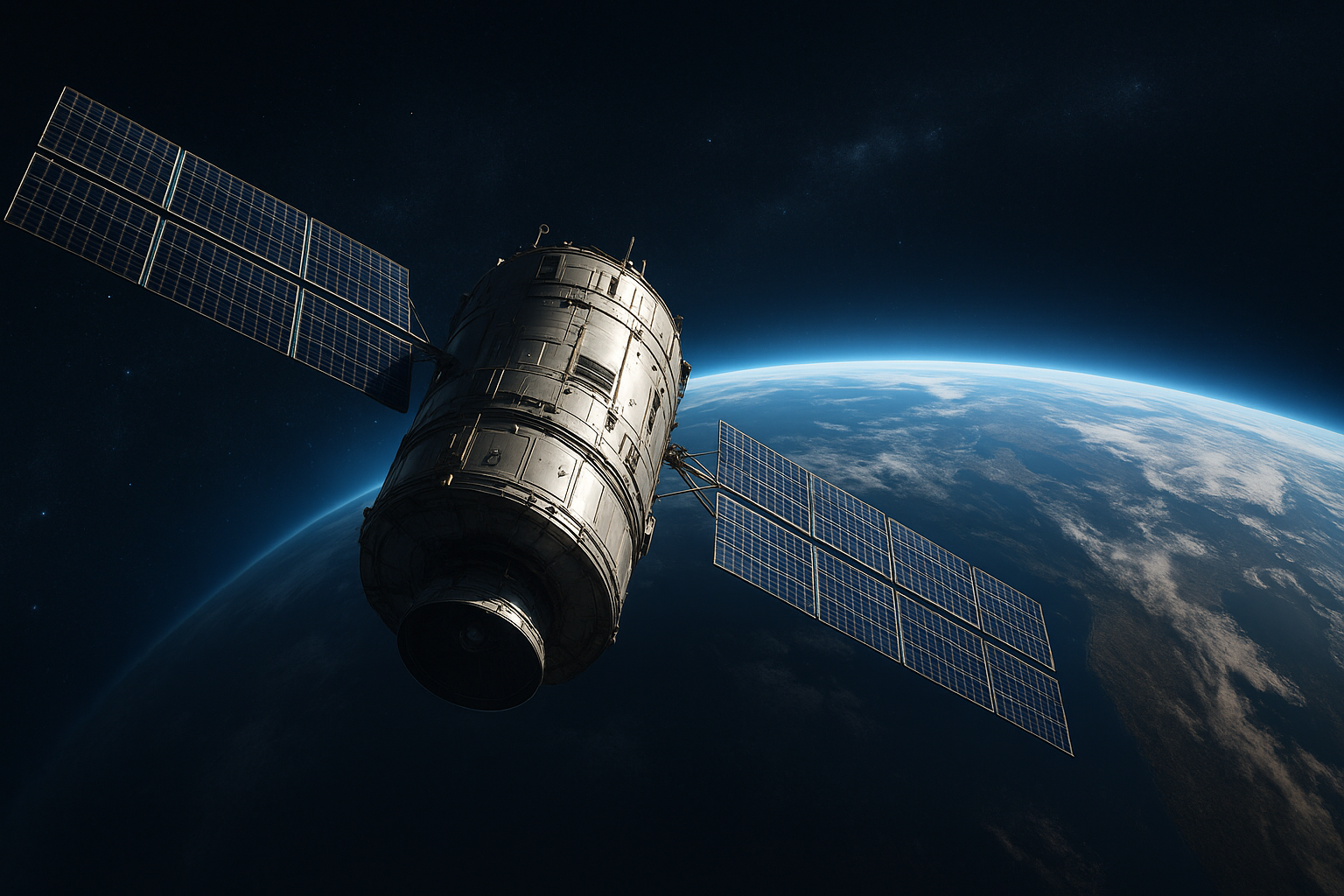By SpaceAutonomy.ai
An $88 million climate-monitoring satellite—MethaneSAT, backed by Google, Jeff Bezos, and the New Zealand government—has gone silent in orbit. Launched in 2024 aboard a SpaceX rocket, the satellite was built to monitor one of the most potent and invisible drivers of climate change: methane.
Now, it’s officially lost in space.
This isn’t just a technical failure. It’s a cautionary moment for the growing field of space autonomy, environmental accountability, and the geopolitical race to dominate orbital climate data.
🌍 A Mission With a Critical Objective
MethaneSAT was a flagship project of the Environmental Defense Fund (EDF), designed to track methane leaks from oil and gas operations with unprecedented precision. It was equipped to detect even small plumes across mid-sized regions, offering data that not only highlighted emissions but could help pinpoint exact sources and track changes over time.
Its competitive edge? Public access to high-quality data. While many satellites track emissions for national security, commercial advantage, or proprietary research, MethaneSAT’s mission was transparency—a publicly accessible eye in the sky.
But sometime in mid-2025, it lost power. The satellite is no longer responsive. Recovery looks unlikely.
“The engineering team is conducting a thorough investigation… but it is likely not recoverable,” EDF confirmed.
🔐 Why This Loss Hits Hard
Methane is responsible for nearly one-third of modern global warming, and oil and gas operations are the second-largest contributors after agriculture. Methane leaks often go undetected—or unreported—by companies. In many regions, satellite surveillance is the only independent mechanism for verifying emissions.
That’s why MethaneSAT’s public, AI-assisted model was so valuable:
- 🛰️ Google provided AI infrastructure to process data in real-time
- 💸 Bezos Earth Fund contributed $110M in total funding
- 🇳🇿 New Zealand and other partners supported the international collaboration
Its loss sets back a vital piece of the planetary surveillance network—and removes a key accountability layer at a time when climate pledges are faltering.
🧠 Our Take at SpaceAutonomy.ai
This isn’t just about methane. It’s a broader wake-up call about the fragility and importance of autonomous systems in orbit.
- Even the most advanced AI-augmented satellites are still vulnerable to single points of failure.
- We’re building global policy, trust, and climate strategy on systems that can go dark without warning.
- And while commercial satellites increase in number, transparent, mission-driven platforms like MethaneSAT are still rare.
If space-based environmental monitoring is to be part of our planetary defense, it can’t hinge on a handful of experimental craft. It needs to be robust, redundant, and sovereign.
This raises urgent questions for the future of AI-driven orbital infrastructure:
- Should climate satellites be considered critical infrastructure?
- How do we ensure data sovereignty and public access when private companies dominate launch and compute capacity?
- And what role does AI autonomy play in self-healing, error correction, and future-proof satellite design?
📉 What Happens Next?
For now, the EDF is focused on two things:
- Analyzing and releasing the data MethaneSAT did manage to collect, which remains scientifically valuable.
- Investigating the root cause of the failure—whether mechanical, electrical, or software-related.
No decision has been made yet on launching a replacement. And while a dozen+ other satellites continue to monitor methane, few offer MethaneSAT’s unique combination of focus, fidelity, and transparency.
Meanwhile, methane emissions from the global energy sector remain at near-record levels. The International Energy Agency recently stated that 70% of these emissions could be avoided at low cost—if only we could track them properly.
🔭 Looking Forward: Autonomy Must Mean Resilience
As we push forward into a world powered and governed by space autonomy, the MethaneSAT failure is a powerful reminder:
Orbit is not forgiving.
We need more than launch contracts and AI models. We need:
- Redundancy in climate monitoring systems
- Open-data satellites owned by international coalitions
- Autonomous spacecraft capable of adapting, diagnosing, and self-recovering from failure
Because when a single lost satellite can set back our understanding of planetary health, we’re not just dealing with tech—we’re dealing with the infrastructure of survival.
📣 Follow the Mission with SpaceAutonomy.ai
We report on the collision of space, climate, defense, and autonomy—tracking the systems shaping Earth and orbit.
🚀 Read more at SpaceAutonomy.ai
🛰️ Follow @Space_Autonomy and @SpaceAutonomy
📡 Subscribe for mission-critical updates, autonomous tech news, and orbital intelligence
